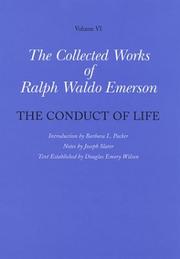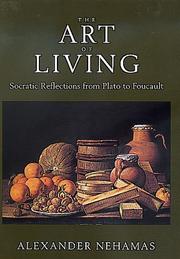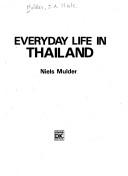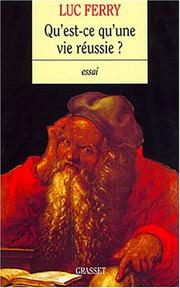| Listing 1 - 10 of 41 | << page >> |
Sort by
|
Book
ISBN: 9782930280424 2930280425 Year: 2013 Volume: 105 Publisher: Malonne: Feuilles familiales,
Abstract | Keywords | Export | Availability | Bookmark
 Loading...
Loading...Choose an application
- Reference Manager
- EndNote
- RefWorks (Direct export to RefWorks)
Conduct of life --- Ethics [Practical ] --- Levenswijze --- Mode de vie --- Morals --- Personal conduct

ISBN: 0674011902 9780674011908 Year: 2003 Publisher: Cambridge (Mass.): Belknap press of Harvard university press,
Abstract | Keywords | Export | Availability | Bookmark
 Loading...
Loading...Choose an application
- Reference Manager
- EndNote
- RefWorks (Direct export to RefWorks)
Conduct of life. --- Conduct of life --- Ethics, Practical --- Morals --- Personal conduct --- Ethics --- Philosophical counseling
Book
ISBN: 1474437141 9781474437141 1474437133 1474437117 9781474437110 1474437125 9781474437127 9781474437127 9781474437110 1474437117 1474437125 Year: 2018 Publisher: Edinburgh : Edinburgh University Press,
Abstract | Keywords | Export | Availability | Bookmark
 Loading...
Loading...Choose an application
- Reference Manager
- EndNote
- RefWorks (Direct export to RefWorks)
Analyses our modern obsession with intense experiences in terms of the metaphysics of intensityRead an extract from The Life Intense, 'What electricity has done to thought', on the Edinburgh University Press blogOur lives today are oppressed by the demand that we live, feel and experience with ever greater intensity. We are enticed to try exotic flavours and smells; urged to enjoy a wide range of sexual experiences; pushed to engage in extreme sports and recreational drugs – all in the pursuit of some new, unheard-of intensity.Tristan Garcia argues that such intensity rarely lives up to its promise. It always comes at a price: one that defines the ethical predicament of contemporary life.The notion of intensity was the hidden key to Garcia’s landmark book Form and Object. In The Life Intense, the first part of his ambitious Letting Be trilogy, he begins to develop it in detail. This first book focuses on ethics; the forthcoming two books look at politics and metaphysics respectively."
Life. --- Conduct of life. --- Ethics, Practical --- Morals --- Personal conduct --- Ethics --- Philosophical counseling --- Life --- Philosophy --- Conduct of life

ISBN: 0520211731 9780520211735 Year: 1998 Volume: 61 Publisher: Berkeley (Calif.): University of California press,
Abstract | Keywords | Export | Availability | Bookmark
 Loading...
Loading...Choose an application
- Reference Manager
- EndNote
- RefWorks (Direct export to RefWorks)
For much of its history, philosophy was not merely a theoretical discipline but a way of life, an "art of living." This practical aspect of philosophy has been much less dominant in modernity than it was in ancient Greece and Rome, when philosophers of all stripes kept returning to Socrates as a model for living. The idea of philosophy as an art of living has survived in the works of such major modern authors as Montaigne, Nietzsche, and Foucault. Each of these writers has used philosophical discussion as a means of establishing what a person is and how a worthwhile life is to be lived. In this wide-ranging, brilliantly written account, Alexander Nehamas provides an incisive reevaluation of Socrates' place in the Western philosophical tradition and shows the importance of Socrates for Montaigne, Nietzsche, and Foucault.Why does each of these philosophers―each fundamentally concerned with his own originality―return to Socrates as a model? The answer lies in the irony that characterizes the Socrates we know from the Platonic dialogues. Socratic irony creates a mask that prevents a view of what lies behind. How Socrates led the life he did, what enabled or inspired him, is never made evident. No tenets are proposed. Socrates remains a silent and ambiguous character, forcing readers to come to their own conclusions about the art of life. This, Nehamas shows, is what allowed Montaigne, Nietzsche, and Foucault to return to Socrates as a model without thereby compelling them to imitate him.This highly readable, erudite study argues for the importance of the tradition within Western philosophy that is best described as "the art of living" and casts Montaigne, Nietzsche, and Foucault as the three major modern representatives of this tradition. Full of original ideas and challenging associations, this work will offer new ways of thinking about the philosophers Nehamas discusses and about the discipline of philosophy itself.
Philosophy --- Conduct of life --- Ethics [Practical ] --- Levenswijze --- Mode de vie --- Morals --- Personal conduct --- Socrates --- Philosophers --- -Scholars --- Ethics, Practical --- Ethics --- Philosophical counseling --- Socrate --- Socrates Constantinopolitanus Scholasticus --- Conduct of life. --- -Conduct of life --- -Ethics, Practical --- Scholars --- Socrates. --- Sokrates

ISSN: 00791687 ISBN: 9004113584 9004321071 9789004113589 9789004321076 Year: 1999 Volume: 82 Publisher: Leiden ;Boston Brill
Abstract | Keywords | Export | Availability | Bookmark
 Loading...
Loading...Choose an application
- Reference Manager
- EndNote
- RefWorks (Direct export to RefWorks)
Epictetus' Encheiridion , which was composed by his pupil Arrian with the purpose of giving a comprehensive account of Epictetus' thought, has been transmitted in many sources. Besides the rich direct tradition there are three Christian adaptations, a voluminous commentary by the sixth-century philosopher Simplicius, as well as the indirect tradition. The most recent critical edition is the editio maior by Johannes Schweighäuser (1798), which does not meet the requirements of modern philology. In the first part of this book there is a full account of the transmission of Epictetus' Encheiridion and the three Christian adaptations, based on all extant manuscripts. The second part of the book contains critical editions of the four texts; for the Christian Encheiridion of Vaticanus graecus 2231 this is the editio princeps .
Ethics --- Conduct of life --- Morale --- Morale pratique --- Early works to 1800 --- Ouvrages avant 1800 --- Ethics, Ancient. --- Ethics, Ancient --- Ancient ethics --- Ethics, Practical --- Morals --- Personal conduct --- Philosophical counseling --- Conduct of life. --- Conduct of life - Early works to 1800.
Book
ISBN: 9782873867096 2873867094 Year: 2011 Publisher: Bruxelles: Racine,
Abstract | Keywords | Export | Availability | Bookmark
 Loading...
Loading...Choose an application
- Reference Manager
- EndNote
- RefWorks (Direct export to RefWorks)
Cent grands spécialistes de la psychologie positive du monde entier font part de leurs connaissances sur le bonheur. Sans spéculations philosophiques ou spirituelles, ce livre ouvre de nouvelles perspectives basées sur des recherches scientifiques menées partout dans le monde. Il ne s'agit pas ici de « croire », mais de « savoir ». Les thèmes abordés sont notamment le temps, l'argent, la santé, le succès, le bien-être, l'avenir, la compassion, la jeunesse, la génétique, le hasard, le libre arbitre, l'humour, la souffrance, le chagrin, le choix, la famille, les relations et les amis. Ne portant pas seulement sur le bonheur individuel, mais aussi sur le bien-être des groupes, des organisations et des pays, ce livre dégage une vision globale du bonheur.
Conduct of life --- Ethics [Practical ] --- Levenswijze --- Mode de vie --- Morals --- Personal conduct --- Succes --- Success --- Succès --- Psychologie Psychologie --- Personnalité Persoonlijkheid --- Comportement psychologique du personnel Psychologisch gedrag van het personeel --- Happiness --- Miscellanea

ISBN: 9742102961 9789742102968 Year: 1979 Publisher: Bangkok: Ed. Duang Kamol,
Abstract | Keywords | Export | Availability | Bookmark
 Loading...
Loading...Choose an application
- Reference Manager
- EndNote
- RefWorks (Direct export to RefWorks)
Conduct of life --- Social Values --- Thailand --- Social conditions --- S31/0200 --- Social values --- Values --- Ethics, Practical --- Morals --- Personal conduct --- Ethics --- Philosophical counseling --- Indo China and South East Asia--Thailand --- Social conditions. --- Thailand - Social conditions
Book
ISBN: 9780745655604 0745655602 9780745655611 0745655610 Year: 2015 Publisher: Cambridge: Polity press,
Abstract | Keywords | Export | Availability | Bookmark
 Loading...
Loading...Choose an application
- Reference Manager
- EndNote
- RefWorks (Direct export to RefWorks)
Not exercising as much as you should? Counting your calories in your sleep? Feeling ashamed for not being happier? You may be a victim of the wellness syndrome.
Conduct of life. --- Well-being. --- #SBIB:316.334.3M30 --- Welfare (Personal well-being) --- Wellbeing --- Quality of life --- Happiness --- Health --- Wealth --- Ethics, Practical --- Morals --- Personal conduct --- Ethics --- Philosophical counseling --- Medische sociologie: gezondheidsgedrag --- Conduct of life --- Well-being

ISBN: 2246535514 9782246535515 Year: 2002 Publisher: Paris: Grasset,
Abstract | Keywords | Export | Availability | Bookmark
 Loading...
Loading...Choose an application
- Reference Manager
- EndNote
- RefWorks (Direct export to RefWorks)
#GGSB: Filosofie --- Succès --- Succès --- General ethics --- Conduct of life. --- Success. --- Success --- Ethics --- Morale --- Conduct of life --- Growth (Psychology) --- Personal development --- Personal growth --- Self-improvement --- Fortune --- Failure (Psychology) --- Fear of success --- Ethics, Practical --- Morals --- Personal conduct --- Philosophical counseling --- Filosofie
Book
ISBN: 213049272X 9782130492726 Year: 1998 Volume: 3380 Publisher: Paris: PUF,
Abstract | Keywords | Export | Availability | Bookmark
 Loading...
Loading...Choose an application
- Reference Manager
- EndNote
- RefWorks (Direct export to RefWorks)
Sociology of culture --- Europe --- Courtesy --- Etiquette --- Social norms --- Politesse --- Savoir-vivre --- Normes sociales --- Conduct of life --- Courtesy. --- Désherbage --- Civility --- Courteous behavior --- Courteousness --- Discourteous behavior --- Discourteousness --- Graciousness --- Impoliteness --- Manners --- Polite behavior --- Politeness --- Rudeness --- Ungraciousness --- Ethics, Practical --- Morals --- Personal conduct --- Ethics --- Philosophical counseling --- Deselectie --- Conduct of life. --- Relations sociales
| Listing 1 - 10 of 41 | << page >> |
Sort by
|

 Search
Search Feedback
Feedback About UniCat
About UniCat  Help
Help News
News